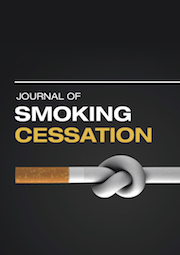No CrossRef data available.
Article contents
Time Spent With Urges to Smoke and Strength of Urges as Independent Predictors of Self-Rated Difficulty Not Smoking During Abstinence
Published online by Cambridge University Press: 21 February 2012
Abstract
Self-perceived difficulty not smoking during a quit attempts is potentially an important factor mediating ability to remain abstinent during quit attempts. We investigated how far this could be explained by specific withdrawal symptoms (e.g., irritability, depressed mood, hunger etc.), strength of the urges to smoke and the time spent with urges to smoke. Thirty-five male and female smokers, who smoked at least 15 cigarettes per day were required to abstain overnight and attended the laboratory the next day and completed the Mood and Physical Symptoms Scale (MPSS), a validated questionnaire assessing cigarette withdrawal symptoms and urges to smoke. They also rated how difficult they had found it not smoking. Difficulty not smoking was independently and strongly predicted by both strength of urges to smoke and time spent with urges, but not by other withdrawal symptoms. The results support the idea that both time spent with urges and strength of urges to smoke are what primarily makes it difficult for smokers to abstain early in a quit attempt and that other withdrawal symptoms play a more modest role. Further research is needed to confirm this finding and examine how far difficulty not smoking mediates failure of quit attempts.
- Type
- Articles
- Information
- Copyright
- Copyright © Cambridge University Press 2009




